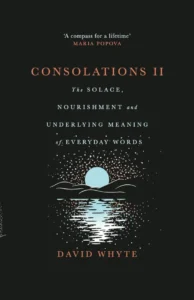The Promethean Power of Burnout
INSPIRATIONAL, 13 Jan 2025
Maria Popova | The Marginalian – TRANSCEND Media Service
 In every creative life, in every life of passion and purpose, there comes a time when the animating spark grows dim and the muscle of motivation slackens, when you come to feel benumbed to beauty and abandoned by your numen, suffocating in the exhaust fume of your own exertion, ossified with the tedium of being yourself.
In every creative life, in every life of passion and purpose, there comes a time when the animating spark grows dim and the muscle of motivation slackens, when you come to feel benumbed to beauty and abandoned by your numen, suffocating in the exhaust fume of your own exertion, ossified with the tedium of being yourself.
We call those moments burnout, and we feel them most acutely as we approach the final horizon of a project, a year, a chapter of life. And yet, just as breakdowns can deepen our self-knowledge and despair can invite the sacred pause preceding regeneration, burnout can become the hearth of change — that urgent and necessary change without which the lulling inertia of our lives would always keep us a short distance from alive.
This secret Promethean power of burnout is what poet and philosopher David Whyte explores in one of the sort, searching essays collected in his Consolations II — the continuation of his earlier emotional dictionary defining the deeper and often ineffable meanings of everyday words, which was among my favorite books of the year.
In the entry for the word burnout, he writes:
Burnout feels like a living central absence, not only of a centre, but the sources that used to rise from that centre.
The exhaustion of burnout always recalls a previously felt internal fire, one from which our unquenchable energies once emerged. Burnout denotes a kind of amnesia: not only in the forgetting of our very personal priorities but the inability to locate a source inside us that previously seemed to run through all the seasons of our life. This loss of a fiery essential centre is also experienced as a loss of faith: a form of forgetting, not only that the source actually existed inside me in the first place but that I might not now ever remember how to drink from it again.
Not unlike existential boredom, of which it is the mirror image, burnout is a misapprehension of time, a failure to trust its ever-undulating flow toward the ever-shifting horizon of the possible. Because we are temporal creatures who only have four thousand weeks to spend our two billion allotted heartbeats, mistrusting time is mistrusting life itself. In a sentiment evocative of Wendell Berry’s celebration of the sabbath as a radical act of resistance, David writes:
Burnout always involves a loss of the timeless and therefore of the ability to rest. Burnout, in a very profound way, is a loss of friendship with time itself… the experience of feeling continually out of season… In the loss of faith in existence itself, we refuse, in a kind of symmetrical sympathy, to fully exist ourselves. Being out of season with the outside world means we also miss our own inner, creative, tidal comings and goings.
Because burnout often results from the invisible wear-and-tear of gliding along the vector of exertion toward a dream we have long outgrown, at its heart is a beckoning to conjure up that most difficult, most rewarding kind of courage — the courage to change our minds and change our lives, to break down the structure of the self in order to imagine it afresh — a process so discomposing, given our paradoxical resistance to transformation, that we may only be able to enter it through the attic of the unconscious. David writes:
Burnout calls for creative breakdown, either in submitting to unconscious self-sabotage, the way that disasters large and small seem to track our exhausted burned-out self on a daily basis, the way we actually create those disasters unknowingly ourselves, trying to make a break for freedom or to create a conscious creative breakdown. Burnout is often as much the resistance to making these changes as being worn down by what we cannot seem to change: all the ways I find it impossible to leave the job, or leave the relationship; all the ways I find it impossible to change my approach to work, or all the ways I need to simply learn to love again must be looked at and allowed to break down and fall away.

Observing that burnout is “a loss of friendship with a very personal sense of the unknown” — that lovely capacity for self-surprise which makes life worth living and allows us to reinvent ourselves — he adds:
Burnout fully realised is also the decisive, exhausted moment in which we realise we cannot go on in the same way.
Not being able to go on, is always in the end, a creative act, the threshold moment of our transformation away from physical exhaustion. Not being able to go on is the beginning of a proper relationship with the timeless and the healing possibilities of timelessness: healing ourselves from burnout always involves a reacquaintance with the eternal: my ability to experience the timeless is a parallel to my ability to rest.
Ultimately, burnout is the pathology of doing in the psyche of being, the only remedy for which is to rest into the primal knowledge that there was never anything to prove with all that exertion, never anything to redeem with all that punitive pursuit of your culture’s or your parents’ or your idols’ ideas about what makes a life worth living.
Echoing Willa Cather’s spare and timeless definition of happiness, David writes:
The foundation from which we transform the experience of burnout is always the realisation that we have been measuring all the wrong things in all the wrong ways and that we have for too long, mis-measured our sense of self in the same way; that we have allowed the shallow rewards of false goals or false people to mesmerise, bedazzle and entrain us: to hide from us an ancient and abiding human dynamic — that we belong to something greater and even better for us than the realm of the measured.
Complement these fragments of the wholly revivifying Consolations II with Alain de Botton on the importance of breakdowns, Katherine May’s potent salve for burnout, and John Gardner on the art of self-renewal, then revisit David Whyte on the relationship between anxiety and intimacy and this superb Where Shall We Meet conversation with him about language and life.
_______________________________________
 My name is Maria Popova — a reader, a wonderer, and a lover of reality who makes sense of the world and herself through the essential inner dialogue that is the act of writing. The Marginalian (which bore the unbearable name Brain Pickings for its first 15 years) is my one-woman labor of love, exploring what it means to live a decent, inspired, substantive life of purpose and gladness. Founded in 2006 as a weekly email to seven friends, eventually brought online and now included in the Library of Congress permanent web archive, it is a record of my own becoming as a person — intellectually, creatively, spiritually, poetically — drawn from my extended marginalia on the search for meaning across literature, science, art, philosophy, and the various other tendrils of human thought and feeling. A private inquiry irradiated by the ultimate question, the great quickening of wonderment that binds us all: What is all this? (More…)
My name is Maria Popova — a reader, a wonderer, and a lover of reality who makes sense of the world and herself through the essential inner dialogue that is the act of writing. The Marginalian (which bore the unbearable name Brain Pickings for its first 15 years) is my one-woman labor of love, exploring what it means to live a decent, inspired, substantive life of purpose and gladness. Founded in 2006 as a weekly email to seven friends, eventually brought online and now included in the Library of Congress permanent web archive, it is a record of my own becoming as a person — intellectually, creatively, spiritually, poetically — drawn from my extended marginalia on the search for meaning across literature, science, art, philosophy, and the various other tendrils of human thought and feeling. A private inquiry irradiated by the ultimate question, the great quickening of wonderment that binds us all: What is all this? (More…)
Go to Original – themarginalian.org
Tags: Inspirational
DISCLAIMER: The statements, views and opinions expressed in pieces republished here are solely those of the authors and do not necessarily represent those of TMS. In accordance with title 17 U.S.C. section 107, this material is distributed without profit to those who have expressed a prior interest in receiving the included information for research and educational purposes. TMS has no affiliation whatsoever with the originator of this article nor is TMS endorsed or sponsored by the originator. “GO TO ORIGINAL” links are provided as a convenience to our readers and allow for verification of authenticity. However, as originating pages are often updated by their originating host sites, the versions posted may not match the versions our readers view when clicking the “GO TO ORIGINAL” links. This site contains copyrighted material the use of which has not always been specifically authorized by the copyright owner. We are making such material available in our efforts to advance understanding of environmental, political, human rights, economic, democracy, scientific, and social justice issues, etc. We believe this constitutes a ‘fair use’ of any such copyrighted material as provided for in section 107 of the US Copyright Law. In accordance with Title 17 U.S.C. Section 107, the material on this site is distributed without profit to those who have expressed a prior interest in receiving the included information for research and educational purposes. For more information go to: http://www.law.cornell.edu/uscode/17/107.shtml. If you wish to use copyrighted material from this site for purposes of your own that go beyond ‘fair use’, you must obtain permission from the copyright owner.
Join the discussion!
We welcome debate and dissent, but personal — ad hominem — attacks (on authors, other users or any individual), abuse and defamatory language will not be tolerated. Nor will we tolerate attempts to deliberately disrupt discussions. We aim to maintain an inviting space to focus on intelligent interactions and debates.